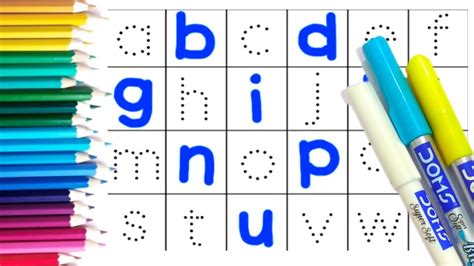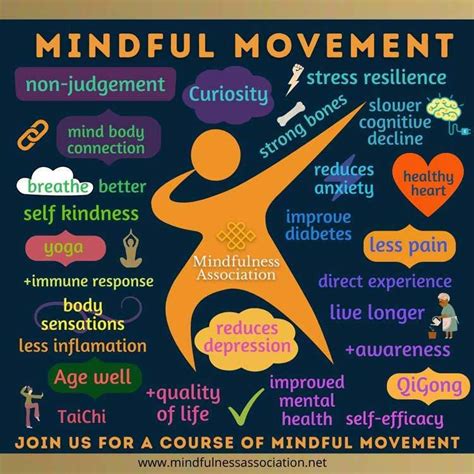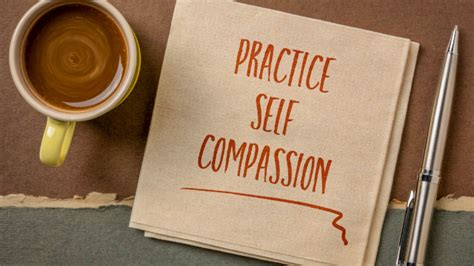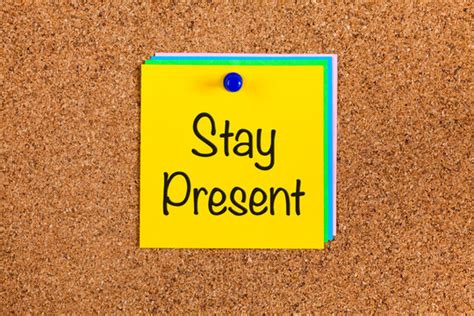Intro
Discover 5 mindful tips to reduce stress and increase self-awareness, promoting emotional balance and mental well-being through mindfulness techniques, meditation, and introspection.
Living in today's fast-paced world can be overwhelming, with constant demands on our time and attention. It's easy to get caught up in the hustle and bustle of daily life and forget to take care of ourselves. However, neglecting our well-being can lead to increased stress, anxiety, and burnout. This is where mindfulness comes in – a powerful tool that can help us cultivate a sense of calm, clarity, and purpose. By incorporating mindful practices into our daily routine, we can improve our overall quality of life and develop a more positive outlook.
Mindfulness is not just a buzzword; it's a proven technique that has been shown to have a significant impact on both physical and mental health. By being more present and aware in our daily lives, we can reduce stress, improve our relationships, and increase our productivity. Moreover, mindfulness is not just for meditation enthusiasts or yoga practitioners; it's a simple yet powerful practice that can be incorporated into anyone's lifestyle. Whether you're a busy professional, a stay-at-home parent, or a student, mindfulness can help you navigate life's challenges with greater ease and confidence.
As we delve into the world of mindfulness, it's essential to understand that it's not a one-size-fits-all approach. What works for one person may not work for another, and that's perfectly okay. The key is to experiment with different techniques and find what resonates with you. With that in mind, let's explore some practical tips for cultivating mindfulness in our daily lives.
Introduction to Mindfulness

Mindfulness is often misunderstood as a complex or esoteric practice, but it's actually quite simple. At its core, mindfulness is about being fully present and engaged in the current moment, while letting go of distractions and judgments. This can be achieved through a variety of techniques, including meditation, deep breathing, and physical movement. By incorporating these practices into our daily routine, we can cultivate a greater sense of awareness, clarity, and purpose.
Benefits of Mindfulness
The benefits of mindfulness are numerous and well-documented. Some of the most significant advantages include reduced stress and anxiety, improved sleep quality, and increased productivity. Mindfulness has also been shown to have a positive impact on relationships, communication, and overall well-being. By being more present and aware, we can navigate life's challenges with greater ease and confidence, leading to a more fulfilling and meaningful life.Tip 1: Start Small

One of the most significant barriers to mindfulness is the misconception that it requires a significant time commitment. While it's true that regular practice can be beneficial, it's not necessary to set aside hours each day to cultivate mindfulness. In fact, starting small is often the best approach. Begin with short, manageable sessions – even just a few minutes each day – and gradually increase as you become more comfortable with the practice. This might involve taking a few deep breaths each morning, paying attention to your senses during a daily walk, or practicing a simple meditation technique before bed.
Getting Started
Getting started with mindfulness is easier than you think. Here are a few simple tips to get you started: * Download a mindfulness app, such as Headspace or Calm, to guide you through meditation and deep breathing exercises. * Set aside a few minutes each day to practice mindfulness, whether it's first thing in the morning or right before bed. * Start small and be consistent, gradually increasing your practice as you become more comfortable with the technique.Tip 2: Practice Mindful Movement

Mindful movement is a powerful way to cultivate awareness and presence in our daily lives. This might involve activities like yoga, tai chi, or walking, which encourage us to pay attention to our breath, body, and surroundings. By incorporating mindful movement into our routine, we can reduce stress, improve our physical health, and increase our overall sense of well-being. Some popular mindful movement practices include:
- Yoga: a combination of physical postures, breathing techniques, and meditation to promote relaxation and awareness.
- Tai chi: a slow, flowing exercise that combines movement, breath, and meditation to cultivate balance and harmony.
- Walking: a simple yet powerful way to cultivate mindfulness, whether it's a short walk around the block or a longer hike in nature.
Benefits of Mindful Movement
The benefits of mindful movement are numerous and well-documented. Some of the most significant advantages include: * Reduced stress and anxiety * Improved physical health and flexibility * Increased sense of balance and coordination * Enhanced overall sense of well-being and life satisfactionTip 3: Cultivate Gratitude

Gratitude is a powerful mindfulness practice that can have a significant impact on our overall well-being. By focusing on the things we're thankful for, we can shift our perspective, reduce stress and anxiety, and cultivate a greater sense of appreciation and joy. Here are a few simple ways to cultivate gratitude:
- Keep a gratitude journal to record the things you're thankful for each day.
- Share your gratitude with a friend or loved one, whether it's through a kind word or a small gift.
- Practice gratitude meditation, focusing on the things that bring you joy and appreciation.
Benefits of Gratitude
The benefits of gratitude are numerous and well-documented. Some of the most significant advantages include: * Reduced stress and anxiety * Improved relationships and social connections * Increased sense of well-being and life satisfaction * Enhanced resilience and coping skillsTip 4: Practice Self-Compassion

Self-compassion is an essential mindfulness practice that can have a significant impact on our overall well-being. By treating ourselves with kindness, understanding, and patience, we can reduce stress and anxiety, improve our relationships, and cultivate a greater sense of self-awareness and acceptance. Here are a few simple ways to practice self-compassion:
- Be gentle with yourself, acknowledging that everyone makes mistakes and that it's okay not to be perfect.
- Practice self-care, taking time to nourish and pamper yourself.
- Focus on the present moment, letting go of self-criticism and judgment.
Benefits of Self-Compassion
The benefits of self-compassion are numerous and well-documented. Some of the most significant advantages include: * Reduced stress and anxiety * Improved relationships and social connections * Increased sense of self-awareness and acceptance * Enhanced resilience and coping skillsTip 5: Stay Present

Staying present is a fundamental mindfulness practice that can have a significant impact on our overall well-being. By focusing on the current moment, we can reduce stress and anxiety, improve our relationships, and cultivate a greater sense of awareness and appreciation. Here are a few simple ways to stay present:
- Practice mindfulness meditation, focusing on your breath and letting go of distractions.
- Engage in physical activity, such as walking or yoga, to cultivate a sense of presence and awareness.
- Focus on your senses, paying attention to the sights, sounds, and smells around you.
Benefits of Staying Present
The benefits of staying present are numerous and well-documented. Some of the most significant advantages include: * Reduced stress and anxiety * Improved relationships and social connections * Increased sense of awareness and appreciation * Enhanced overall sense of well-being and life satisfactionWhat is mindfulness, and how can it benefit my life?
+Mindfulness is the practice of being fully present and engaged in the current moment, while letting go of distractions and judgments. By incorporating mindfulness into your daily routine, you can reduce stress and anxiety, improve your relationships, and cultivate a greater sense of awareness and appreciation.
How do I get started with mindfulness, and what are some simple practices I can try?
+Getting started with mindfulness is easier than you think. Begin with short, manageable sessions – even just a few minutes each day – and gradually increase as you become more comfortable with the practice. Some simple mindfulness practices include meditation, deep breathing, and physical movement, such as yoga or walking.
What are some common misconceptions about mindfulness, and how can I overcome them?
+One common misconception about mindfulness is that it requires a significant time commitment. However, even short periods of mindfulness practice can be beneficial. Another misconception is that mindfulness is only for meditation enthusiasts or yoga practitioners; however, anyone can incorporate mindfulness into their daily routine. By starting small and being consistent, you can overcome these misconceptions and cultivate a greater sense of awareness and well-being.
As we conclude our exploration of mindful tips, we invite you to take the next step and incorporate these practices into your daily routine. Whether you're looking to reduce stress and anxiety, improve your relationships, or cultivate a greater sense of awareness and appreciation, mindfulness can help. By starting small, practicing mindful movement, cultivating gratitude, practicing self-compassion, and staying present, you can take the first steps towards a more fulfilling and meaningful life. So why not give it a try? Share your experiences, ask questions, and join the conversation – we'd love to hear from you!
